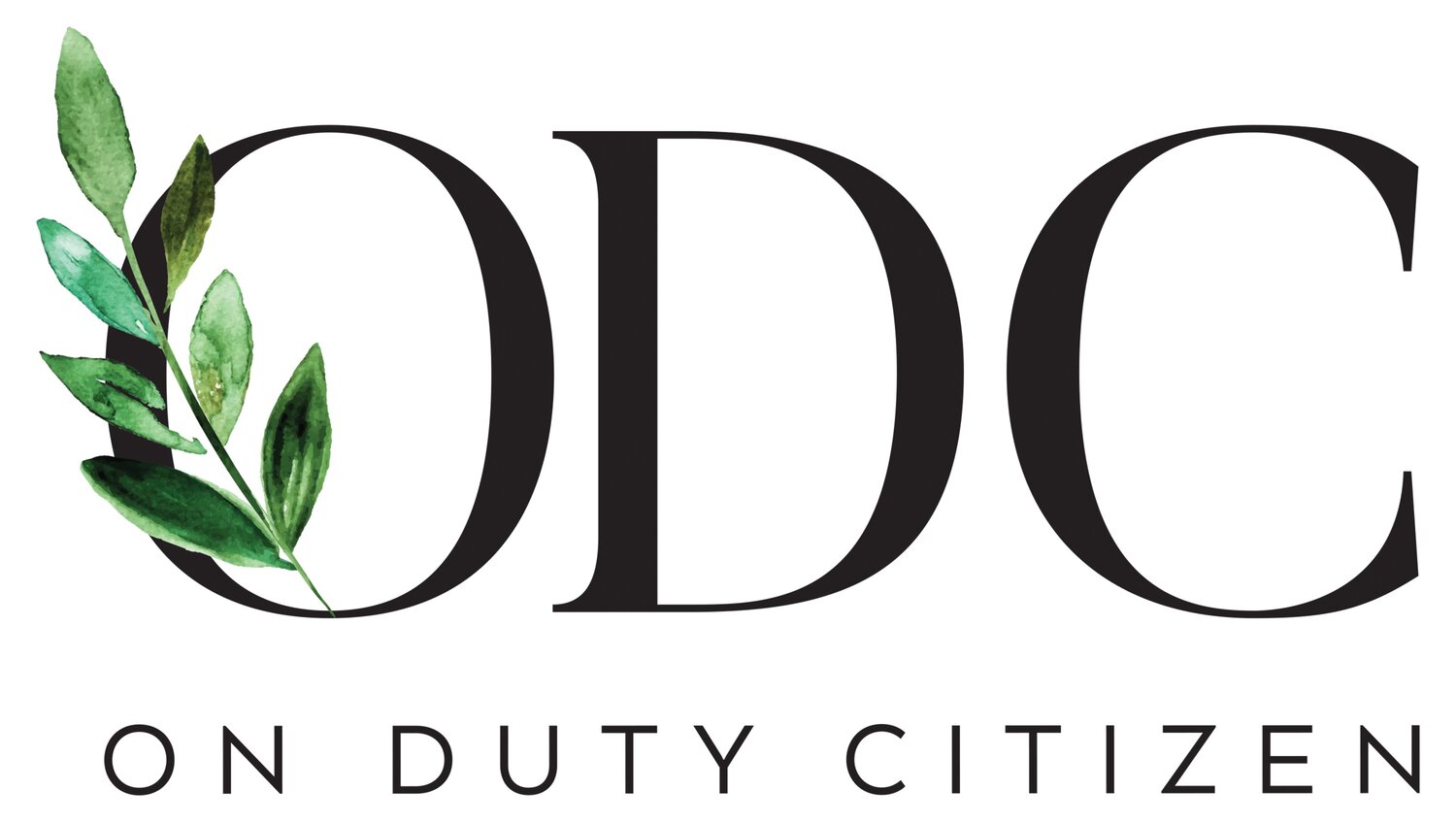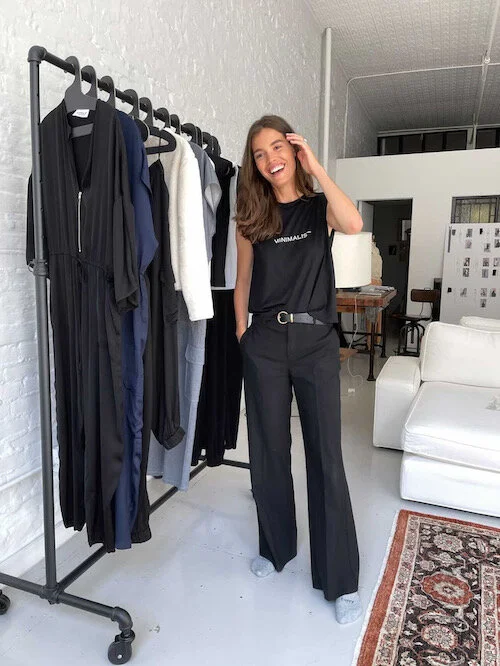As a model, it’s a privilege to be able to connect with designers, sewers, and all the moving parts that go into making beautiful clothing. Tamara Davydova and I worked together years ago and kept in touch because of our shared love for sustainability. Tamara decided to create her brand Minimalist, and went steps further beyond sustainability to incorporate circularity into her business model. On a recent trip to NYC, I got to catch up with Tamara and hear all about her studies of circular fashion, what she thinks about sustainability and how she plans to evolve Minimalist. Here are some of the things we talked about below.
1) Can you tell us about your own personal journey in the fashion industry and how you ended up having your own brand?
I graduated from the Parsons School of Design with a BFA degree in Fashion Design. Over the course of my 20-year career, I led design teams and worked alongside designers including Michael Kors and Monique Lhuillier. In 2021 I launched my own ready-to-wear brand MINIMALIST -- designed with the principles of circularity.
2) Sustainability is an incredible goal, but circularity goes further. Can you tell us what this distinction means to you and how you strive to achieve circularity with Minimalist?
At MINIMALIST we design for circularity. That means using sustainable, certified materials and creating timeless, high quality products that will last. With circularity the ultimate goal is for the garments to be fiber-to-fiber recyclable, closing the loop and eliminating landfill waste created by the fashion industry.
3) What are some of the obstacles you’ve come across by owning your own business and how do you overcome them?
I’ve been fortunate to have support and encouragement along the way from industry peers and from family. That said, there have been many challenges and learning curves on this journey. As a creative I wanted to learn more about the business side and took entrepreneurship courses to learn how to launch a startup.
4) What is one of the “dirtiest” parts of the fashion industry and how does Minimalist combat this?
We are focusing on choosing the most sustainable materials that exist today. Fabric dying and trim finishes are big polluters. At MINIMALIST we select certified materials, such as Standard 100 by OEKO-TEX, for fabrics and trims to ensure that we design out waste and pollution from the start.
5) What does transparency mean to you and why do you think this is so important?
At MINIMALIST each product has a list of “ingredients” listed to ensure our customers know what’s in each garment. When I design I carefully select each component and think of it as an “ingredient” in the same way you would want to know what’s in your food. The fewer the ingredients, and the higher quality the ingredients, the better. It’s important to raise customer awareness to be able to distinguish between greenwashing and what’s truly sustainable.
6) What are some tips you have for people looking to implement conscious habits into their daily routine?
Buy less, but better! Check your labels for ingredients and buy truly sustainable products. It can be confusing and there is a lot of greenwashing, but a little research goes a long way.
7) There’s always a bit of a debate about the prices of sustainable fashion. Oftentimes, they’re quite higher than fast-fashion because of the quality of materials, the workers’ wages, and so-forth. Can you talk about the price point for sustainable options and how you see that developing in the future?
Sustainable products can be more expensive, however the consumer's thinking needs to shift to understand that it’s better and ultimately cheaper (because it will last longer) to buy a couple of high quality products, than a bag full of fast fashion. Think farm to table vs junk food. The good news is that consumer demand for sustainable fashion is growing and this is putting pressure to drive a systemic change in the industry towards sustainability.
8) In the climate change movement, who inspires you? Do you have any favorite resources you use to learn more about sustainability?
I met so many inspiring people along the way. There is a company in NYC called Fab Scrap. They tackle textile waste in NYC. We are working with them to ensure that we don’t create textile waste in our R&D process.
9) What are the next steps for Minimalist? How do you see yourselves evolving in the next five years?
We are thrilled to be pioneering the circularity movement in fashion. We are looking into the options of a resale or take back program where our customers can send the garments back to us for resale or recycling once they are done with them. At MINIMALIST our goal is to offer a 360 circular experience for our customers.


